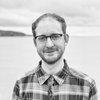Monthnotes: May 2024
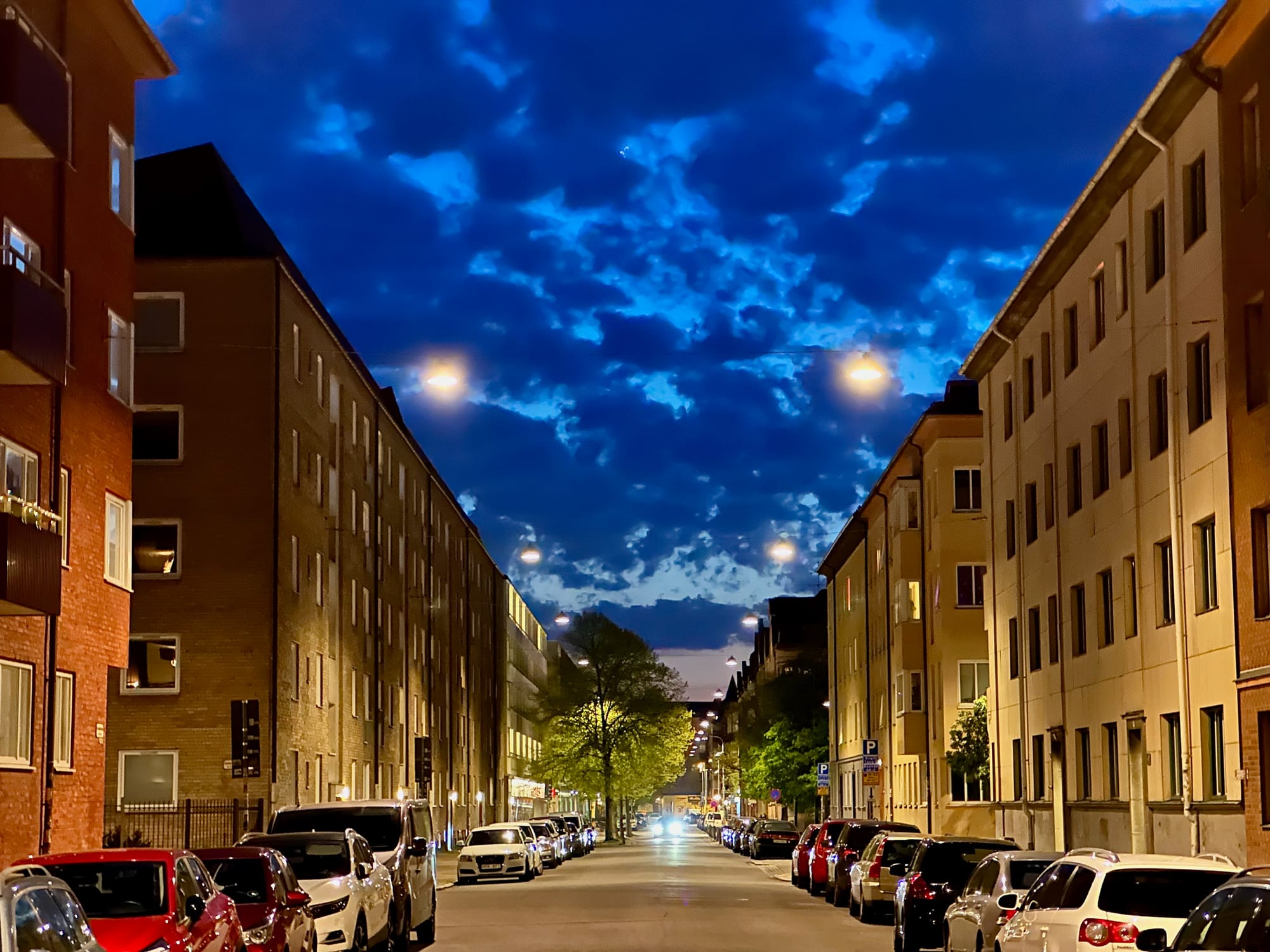
Every month or so, I share a quick digest of what I've been working on and reading. Here's the latest. More in the series here.
On Friday, it's the opening of Nature's Harmony - an immersive exhibition in Helsingborg that my sonification studio, Loud Numbers, was asked to contribute a piece to. The piece is called Scorched Earth, and it's a sonification and visualization of fire data from the year 2018 in Skåne, the Swedish county where I live.
The audio system is an iteration of the work that we did for Hold the Line - the podcast episode that I published last month, which turns forest fire data from Canada in 2022 into sound. It has the same clicks/roars/notes mappings. But we've tweaked things a bit to give it a new identity, and also added a visual layer, built in Touchdesigner.
Those visuals are simple, but I'm really happy with how they came together - initially you see an explanation of how the sonification works. But after a few seconds, a flame appears in the middle of the text, as if a magnifying glass was being held in front of a piece of paper. The flame becomes a burning ring, which expands outward at a rate proportional to the area burnt by fire at that point of the year. The end result is a set of tree rings that show how fire spread over the course of the year.
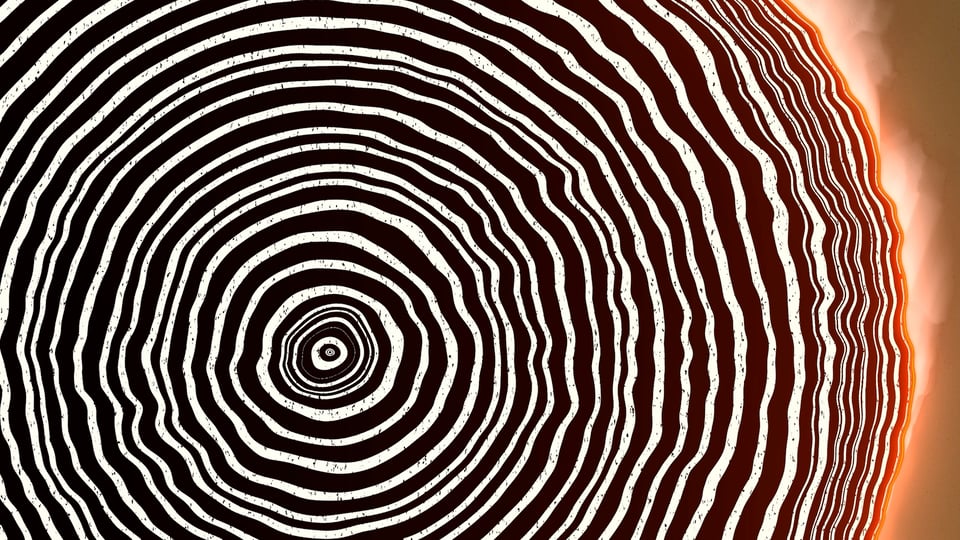
There's also a one-minute clip from the project on YouTube here, so you can get a sense of what I'm talking about. I'll hopefully be able to share the whole thing later this year, so look out for that.
TwoRoundRobins has put together a really nice video showcasing sonification work in the Norns community. It includes my ppm, loud numbers, and ufo scripts - as well as overwintering by Markeats. It's a great watch, even if you're not a Norns user!
Tom Armitage has done a writeup of some work that he did for Lunar Energy, turning data from batteries into a generative soundtrack.

I particularly like how he talks about sketching:
I chose to begin by “playing along” with the videos of our visualisations - finding sounds, scales, patterns that might fit with what we had going on. Simultaneously, I was thinking about what could be controlled and automated, and how.
And what he says about the purist approach to sonification versus what he calls "dynamic scoring", more akin to what you've get in a videogame where the soundtrack responds to what you're doing.
I tend to think of “turning data into sound” as a sliding scale. At one end is a very pure kind of Data Sonification - mapping data quite specifically to individual sonic elements, and seeing what emerges. This is a great way of trying to expose patterns and insight in datasets you might otherwise not notice; sonficiation as a tool for discovery. At the other end of that sliding scale is Dynamic Scoring: a musical score that respond to changes in data. This happens not in a direct mapping between each field and a musical control, but in higher level, broader abstractions.
His results are wonderful too. Go have a listen.
The nice folks at Camden Council in London publish an annual "State of the Borough" report, which compiles statistics of all kinds on the people that live and work in Camden.
This year, they asked me to help them summarise some of it in a collection of simple infographics at the start of each of the report's chapters, and I'm pretty happy with how it came out. Look for the charts in lozenge-shaped boxes - those are my bits.
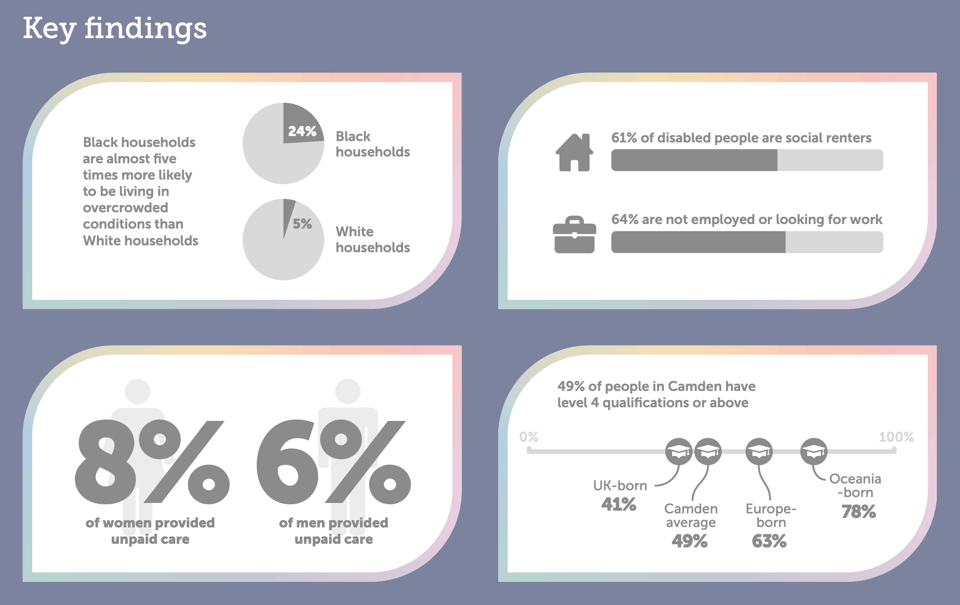
I finally finished reading The Dawn of Everything. It was wonderful and epic in length, but I don't know if there's anything I'd cut - it's very readable throughout, there's just a lot of really fantastic stories to tell.

I took a lot away from it, but I think the biggest thing is that the way our societies run is a choice. We're not predestined to be stuck in systems of oppression and inequality by fate or some sort of linear ratchet of human "progress". We can make choices, and many societies throughout history have made different choices and succeeded with them.
Oh, I quit Spotify! After whining about it for years, I got an email saying that my subscription fee would be going up 20% and that was my trigger to cancel.
I'm two weeks clean, at the time of writing, and things are going great. For the time being I've shifted to YouTube Music because I pay for ad-free YouTube already (the best investment anyone can make) and it comes free with that. But YouTube's playlist organisation system isn't great (no folders!!) so I'll see how long I can stand it. I also listen a lot to ambient/experimental stuff on Bandcamp.
Longer-term, I'm still looking for a streaming service that caters primarily to listeners who know what they want to hear, rather than those who mostly listen to generative playlists. I don't think the economics of such a service are viable right now, sadly. But maybe one day that'll change.
Up for stepping out of your comfort zone? How about a month of car-free travel? Between 1 and 30 June, the climate charity that I work for, Possible, is hosting a new round of its Going Car Free Challenge. You can find out more and sign up here.
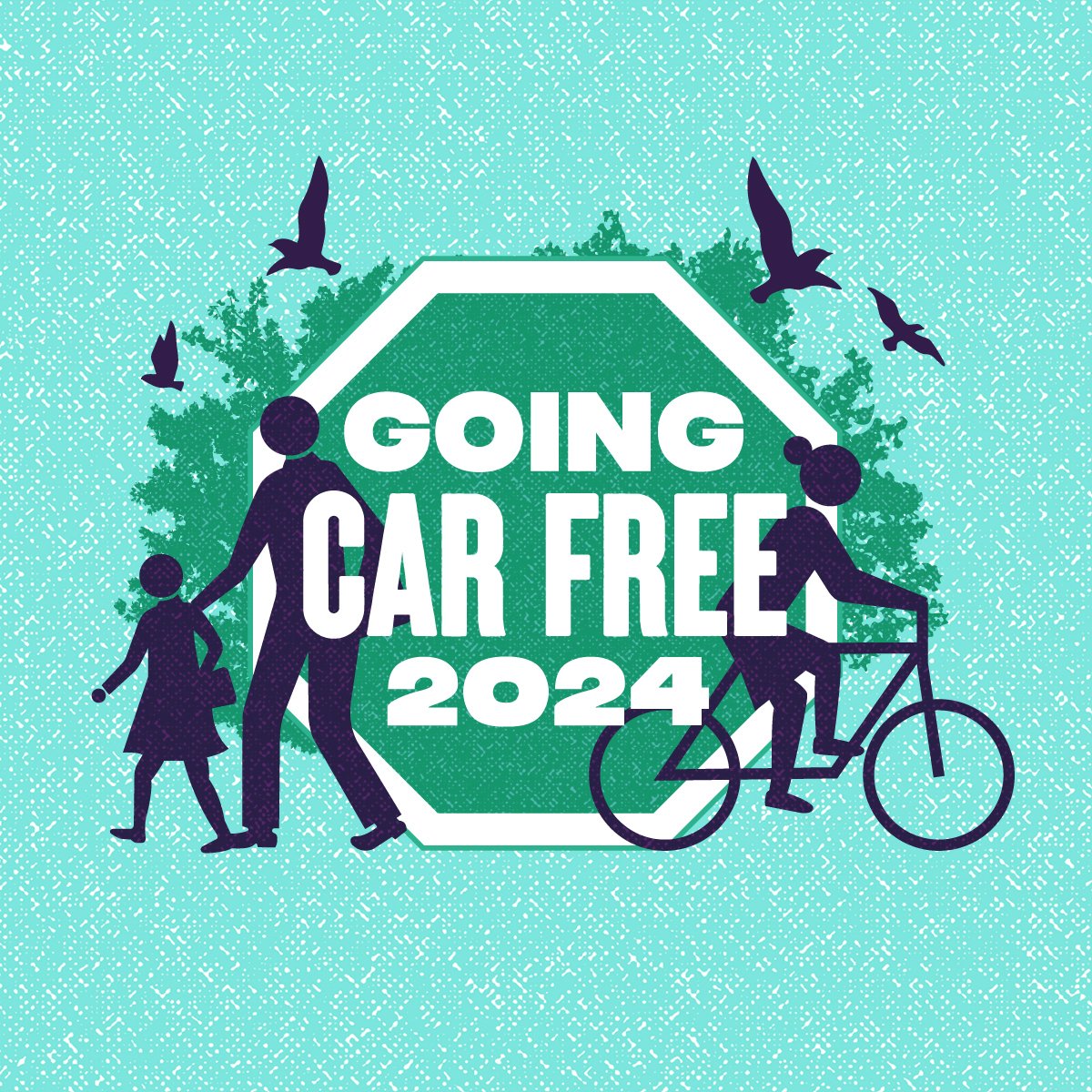
Long-term readers will know I'm a Eurovision fan and I was going to write a whole bunch of stuff about how it went in Malmö this year, but actually it just makes me sad to think about so perhaps I won't... The atmosphere in the city was not good at all - police everywhere, sky full of drones and helicopters, protests every day, huge spiked fences around the "people's park" hosting the Eurovision village.
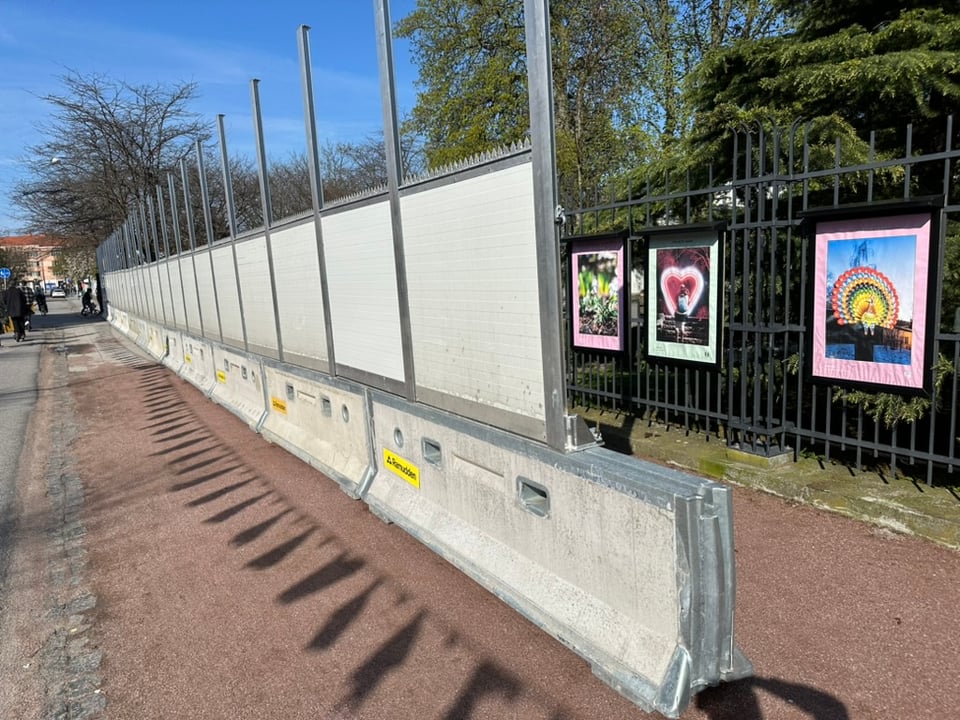
All in all, it was probably the least fun Eurovision year I've experienced, despite many great entries. I hope it can be fixed for next year, I don't know if it can.
Let's leave it at that for today. See you in June.
- Duncan
